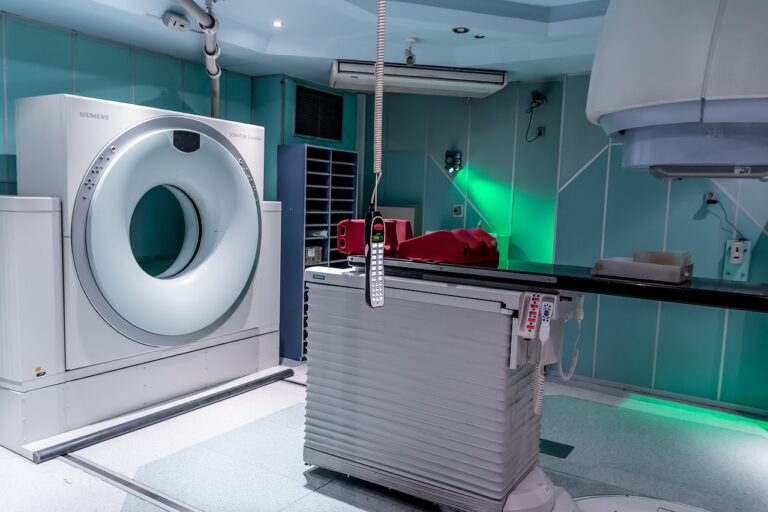The Role of Microbiome in Digestive Health
The human body is a complex ecosystem made up of trillions of microorganisms that play a crucial role in maintaining our overall health and well-being. In recent years, researchers have started to uncover the important connection between the gut microbiome and digestive health. The microbiome refers to the community of microorganisms that live in our gut, including bacteria, viruses, fungi, and other microbes. These tiny inhabitants play a vital role in the functions of our digestive system, influencing everything from nutrient absorption to immune function.
Understanding the Gut Microbiome
Our gut is home to a diverse and dynamic microbial community that is influenced by various factors such as diet, lifestyle, and environment. The gut microbiome is made up of trillions of microorganisms, including beneficial bacteria that help us digest food, produce essential vitamins, and protect against harmful pathogens. Maintaining a healthy balance of these microbes is essential for overall digestive health and well-being.
Functions of the Gut Microbiome
The gut microbiome plays a crucial role in several key functions of the digestive system, including:
1. Digestion and Nutrient Absorption
Beneficial bacteria in the gut help break down food into essential nutrients that our body can absorb and use for energy. These microbes also produce enzymes that aid in the digestion of carbohydrates, fats, and proteins.
2. Immune Function
The gut microbiome plays a critical role in supporting the immune system by interacting with immune cells in the gut lining. A healthy gut microbiome can help protect against infections and inflammatory conditions.
3. Gut Barrier Function
The gut lining acts as a barrier that prevents harmful substances from entering the bloodstream. The gut microbiome plays a key role in maintaining the integrity of the gut barrier and preventing leaky gut syndrome.
4. Metabolism and Weight Regulation
Recent studies have shown that the composition of the gut microbiome can influence metabolism and weight regulation. Imbalances in the gut microbiome have been linked to obesity and metabolic disorders.
Factors Affecting the Gut Microbiome
Several factors can influence the composition and diversity of the gut microbiome, including:
1. Diet
What we eat has a significant impact on the health of our gut microbiome. A diet high in fiber-rich foods, fruits, vegetables, and whole grains can promote the growth of beneficial bacteria in the gut.
2. Lifestyle
Factors such as stress, lack of sleep, and physical inactivity can disrupt the balance of the gut microbiome. Adopting healthy lifestyle habits can help support a diverse and thriving gut microbiome.
3. Antibiotics and Medications
Antibiotics and certain medications can disrupt the balance of the gut microbiome by killing off beneficial bacteria. It is essential to use antibiotics judiciously and consult with a healthcare provider before taking medications that may affect the gut microbiome.
Improving Digestive Health with Probiotics
Probiotics are live microorganisms that can help restore and maintain a healthy balance of bacteria in the gut. These beneficial bacteria can support digestion, boost immune function, and promote overall gut health. Consuming probiotic-rich foods such as yogurt, kefir, sauerkraut, and kimchi can help nourish the gut microbiome and improve digestive health.
FAQs
Q: What are the signs of an unhealthy gut microbiome?
A: Symptoms of an unhealthy gut microbiome may include digestive issues such as bloating, gas, constipation, diarrhea, and stomach pain. Other signs may include fatigue, weight gain, skin problems, and weakened immune function.
Q: How can I support a healthy gut microbiome?
A: You can support a healthy gut microbiome by eating a diverse and nutrient-rich diet, getting regular exercise, managing stress, getting enough sleep, and avoiding unnecessary antibiotics and medications. Consuming probiotic-rich foods and supplements can also help promote a healthy balance of bacteria in the gut.
Q: Can the gut microbiome impact mental health?
A: Emerging research suggests that there is a strong connection between the gut microbiome and mental health. The gut-brain axis, which involves communication between the gut and the brain, plays a critical role in regulating mood, cognitive function, and stress responses.
Conclusion
The gut microbiome plays a vital role in our digestive health and overall well-being. By understanding the functions of the gut microbiome and adopting healthy lifestyle habits, we can support a diverse and thriving microbial community in our gut. Incorporating probiotic-rich foods and supplements can further enhance the health of the gut microbiome and promote optimal digestive function. By prioritizing the health of our gut microbiome, we can improve our digestive health and quality of life.







